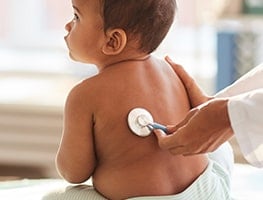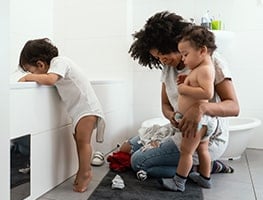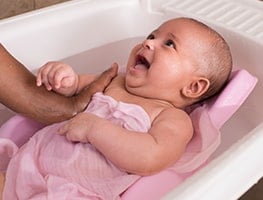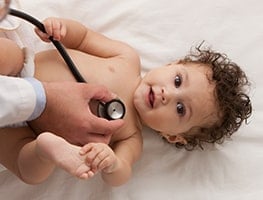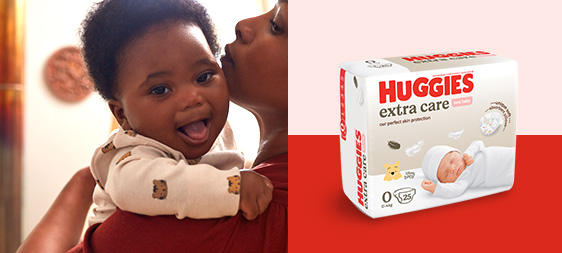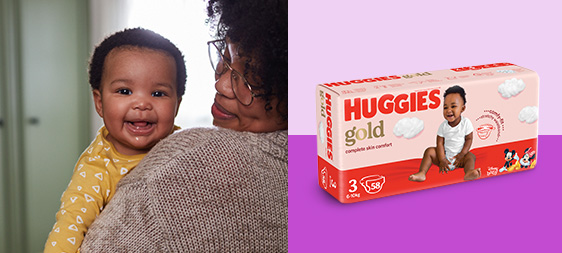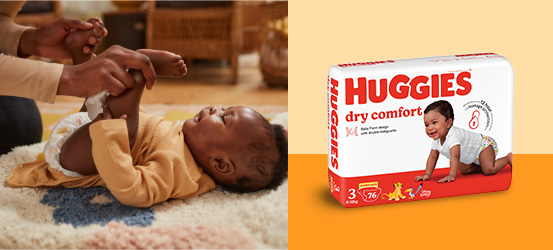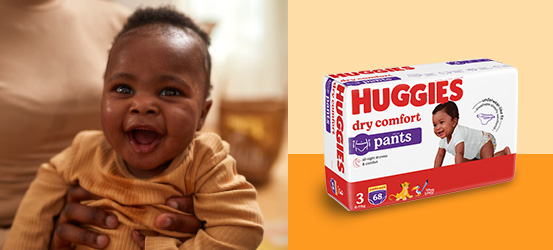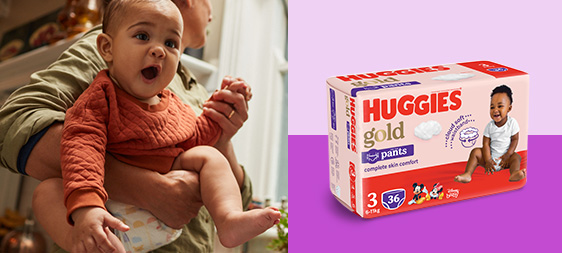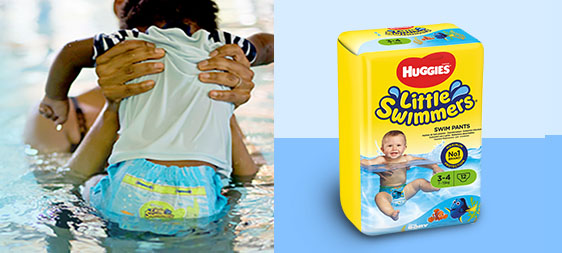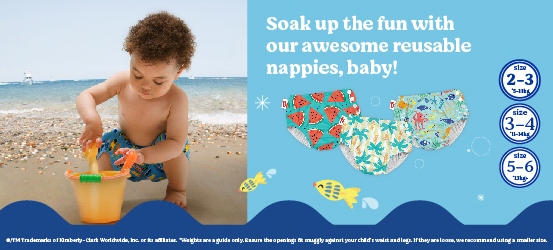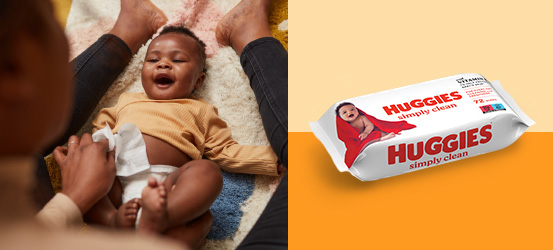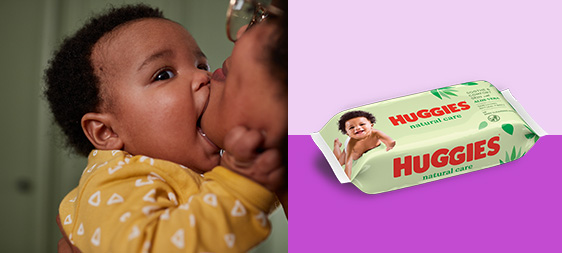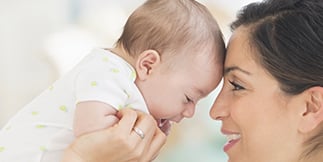Teething
Teething is when teeth first emerge from your baby’s gums. Most babies start the teething process between the ages of 8 and 13 months when the first incisors start to appear. Early developers may start sprouting teeth from as early as 3 months old, while late developers don’t start teething until one year of age.
The first baby teeth usually are the bottom front teeth followed by the front upper teeth (incisors). Most toddlers complete teething and have a full set of teeth by around the age of 3. These teeth usually last until age 6, when adult teeth start to emerge.
Baby teething is often named as the cause of a wide variety of baby health-related problems. Yes, teething can bring with it a whole bunch of issues but should not be the umbrella term for any health problem or mood swing in a baby or toddler.
For example, teething does not cause fever, diarrhoea, colds, coughs, ear infections or nappy rash.
Teething may be accompanied by the following symptoms:
Excessive biting and drooling.
Lots of sucking of thumbs and dummies.
Irritability.
Loss of appetite.
There is not much you can do to accelerate the teething process, but you can help your baby be more comfortable. Giving your baby something to chew on, like a cold facecloth from the refrigerator, or a teething ring or if they are already on solids, a cooled carrot or cucumber which may ease the discomfort that your baby is feeling. You can also rub their gums with a clean finger or a damp facecloth.
Bedtime is often the worst time in terms of teething discomfort. If your baby is really irritated then consider administering an over-the-counter baby paracetamol - but always check with your doctor before you medicate your baby).
You may suffer many sleepless nights while your baby is teething, but when they smile that huge ear-to-ear grin, it will all be worth it!
Baby teeth care
Generally, you should start taking care of your baby’s teeth as soon as the teething process has started and the first tooth emerges. This should be done with a very soft toothbrush and toothpaste that doesn’t have added fluoride (this kind of toothpaste is easier and safer for your baby to swallow).
There are often more questions than answers regarding baby teeth care and, in particular, concerning teething that include:
“How should I clean their teeth or gums?”
“Are there any hints on how to make the experience stress free?”
These kinds of questions can be answered by your healthcare professional.
At around one year old you should take your baby to the dentist to check that their teeth are developing on schedule.
Preventing tooth decay
Teething brings with it a whole lot of new issues and problems- most of all tooth decay. Now that your little one has started to get teeth, you have to worry about keeping them in top shape and preventing decay.
Unfortunately, many of your baby’s favourite foods might cause their teeth to get cavities. Some kids seem to have perfect teeth with no cavities, while others may spend countless hours in the dentist’s chair for cavities.






